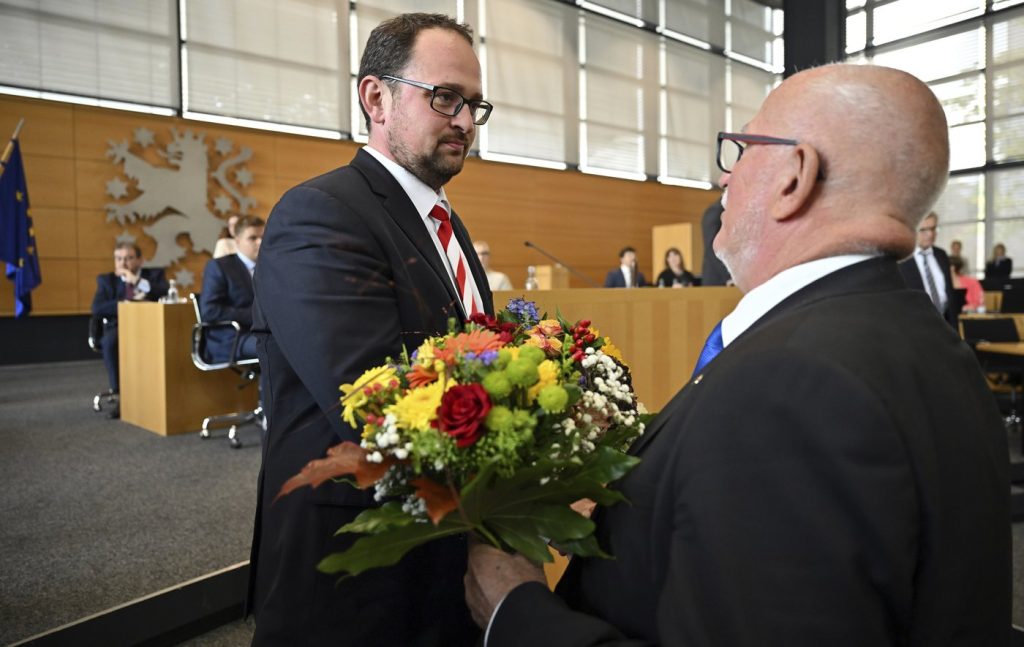Eastern German legislature elects mainstream conservative speaker after far-right election win

BERLIN (AP) — Lawmakers elected a mainstream conservative as speaker of the state parliament in eastern Germany’s Thuringia region on Saturday, putting aside a convention that the strongest party gets the job after the far-right Alternative for Germany won a regional election for the first time.
The center-right Christian Democratic Union’s Thadäus König was elected in a parliamentary session that stretched over two days, punctuated by a court ruling against the conduct of the far-right politician who chaired the proceedings.
It underlined the prospect of a very bumpy parliamentary term after the Sept. 1 election in which Alternative for Germany, or AfD, finished first with nearly one-third of the vote — the first far-right win in a state election in post-World War II Germany. However, it fell well short of a majority, and no other party wants to govern with it.
Advertisement
The legislature in Erfurt was supposed to elect its speaker on Thursday. In Thuringia, as in other German states, the first session after an election is chaired by the oldest lawmaker — in this case, AfD’s Jürgen Treutler.
Treutler drew criticism in a turbulent and often-interrupted meeting for refusing to allow lawmakers to speak, put forward motions or debate allowing all parties, not just AfD, to put forward candidates for the speaker’s job.
The CDU protested to Thuringia’s constitutional court, which ruled Friday that the rules of procedure can be changed before a speaker is elected.
In a calmer session Saturday, lawmakers elected König over AfD candidate Wiebke Muhsal by 54 votes to 32, with one abstention. AfD has 32 lawmakers.
By convention, thought not by law, the speaker’s job usually goes to the strongest party. But other parties had said they wouldn’t elect an AfD candidate and also objected to Muhsal, as she was fined for fraud years ago.
Advertisement
It remains to be seen whether and when parties will manage to put together a state government. No one wants to work with AfD. The domestic intelligence agency has the party’s Thuringia branch, led by prominent hard-right figure Björn Höcke, under official surveillance as a “proven right-wing extremist” group.
The only alternative is an improbable alliance of the CDU, a new party led by a prominent leftist and the center-left Social Democrats. That would be one seat short of a majority and would probably need some kind of help from the Left Party, which has communist roots.
The Associated Press